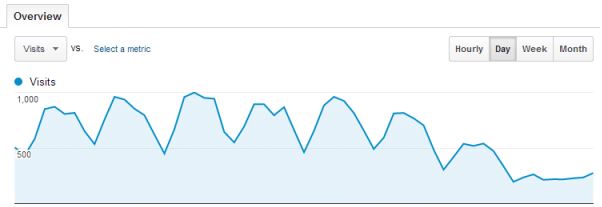Google’s local algorithm update, named “Pigeon” by Search Engine Land, is the latest of many Google updates that have left business owners wondering whether or not they’ll see increases or decreases in website referrals, leads and business.
Pigeon’s effects are still being discussed, but one of the most prevalent is the significant reduction of map packs in search results. Searches that used to yield a seven-pack may now yield a three-pack or no pack. Many have also noticed that local directory sites like Yelp and Trip Advisor are experiencing more visibility in Google search results.
Anticipating Updates
A couple of things are worth taking note when an update is released. First, Google’s mission is to provide the best possible information to the user, so you can expect occasional updates from them that affect the way businesses are listed. Second, they’re serious about protecting the integrity of their search engine, so anything threatening that objective is going to get demoted or penalized; essentially deemed irrelevant.
If you operate a business online, then you have seen how pivotal these updates are in determining next steps for your business. The Pigeon update, as we’re calling it, officially rolled out on July 24. So, enough time has passed that you ought to have sufficient data to see how it may have affected you.
Detecting Updates in Google Analytics
Looking over your site analytics early on can help you identify new trends and allow you to correct course to reduce loss.

If you are a local business operating in a single market, start by checking your overview to see if there is a sudden drop or downward trend in traffic. If you are operating in multiple markets, check your specific location pages for dips or drops in traffic.
Cross reference the dates where you experienced sudden drops in traffic with any known updates you find by searching “Google update” in Google. If you catch wind of one, find out as many details as you can about it – its launch date, purpose and possible repercussions.
Living and Dying on Every SEO Update
Google is constantly experimenting with and changing their listings, so if you’re living and dying on every update then you need to diversify your strategy. One major takeaway from the Pigeon update is that you need an SEO strategy that involves ranking both locally and organically. That way, you don’t get thrown in the hurt tank if something happens to your map pack listing.
Recovering from an update-induced loss can be relatively simple and quick. Recovering from penalty, however, is a much more involved process and can take many months. If you suspect you are under penalty, manual or algorithmic, then you need to be prepared to take whatever action is necessary to conform to Google’s guidelines. You can’t compete from the penalty box.
On the Same Page With Google
Are Google’s search results in perfect harmony with their guidelines? No, but businesses violating Google’s guidelines walk a fine line of losing a lot of money by being manually penalized or weeded out of relevance by an algorithm update.
A few months ago, I helped put together a NiftyLaw study, that compared rankings with law firms across five verticals in 100 U.S. markets. It was interesting to see that Google’s guidelines were being violated across the board, for both high ranking and low ranking sites. Businesses put themselves at risk, because they want to be on the same page as a competitor. What they should really be concerned about being on the same page with Google.
The best thing you can do to avoid getting in situations that could result in sudden loss of organic traffic is this: stick to the guidelines. Avoid doing things that you know could be potentially dangerous like building unnatural links, paying for links and so-called black hat tactics. Some will do them anyway to try and gain short term results, but thinking long-term is the best route to go.
If you are under penalty, the key to recovery is showing Google that you are fully committed to their guidelines by being thorough in your cleanup. You have to be aggressive or you’ll waste time submitting reclusion requests only to be denied time and time again.
If you haven’t peeked at your site traffic since Pigeon rolled out, cover your bases now. You may find something related to Pigeon or another update that is inhibiting your growth.
Featured Image: Geraint Rowland via Flick (Creative Commons)
Devin is the Director of Product at Nifty. With over a decade at Nifty, and even more years working in the SEO and digital marketing space, Devin has done it all – from execution to high-level strategy. He is a Google Product Expert and speaks French fluently. In his spare time, Devin enjoys fishing, playing pickleball with his wife, and cheering on his kids from the sidelines.
